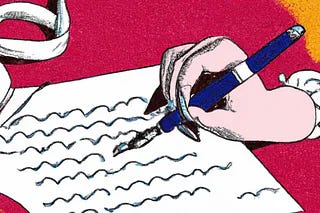In which Lord Terry discusses tea, Macbeth’s fatal flaw, Mulla Nasrudin and fishing, and presents Rebecca with another fiendish cryptic crossword clue. <Snigger>
Dear Rebecca
Thank you for your epistle.
Edgar Wallace’s quaffing 30-40 cups of tea a day is impressive in a bizarre sort of way. I was wondering if the tea kept his body lubricated, thereby aidi…
Keep reading with a 7-day free trial
Subscribe to Eclecticism: Reflections on literature, writing and life to keep reading this post and get 7 days of free access to the full post archives.



